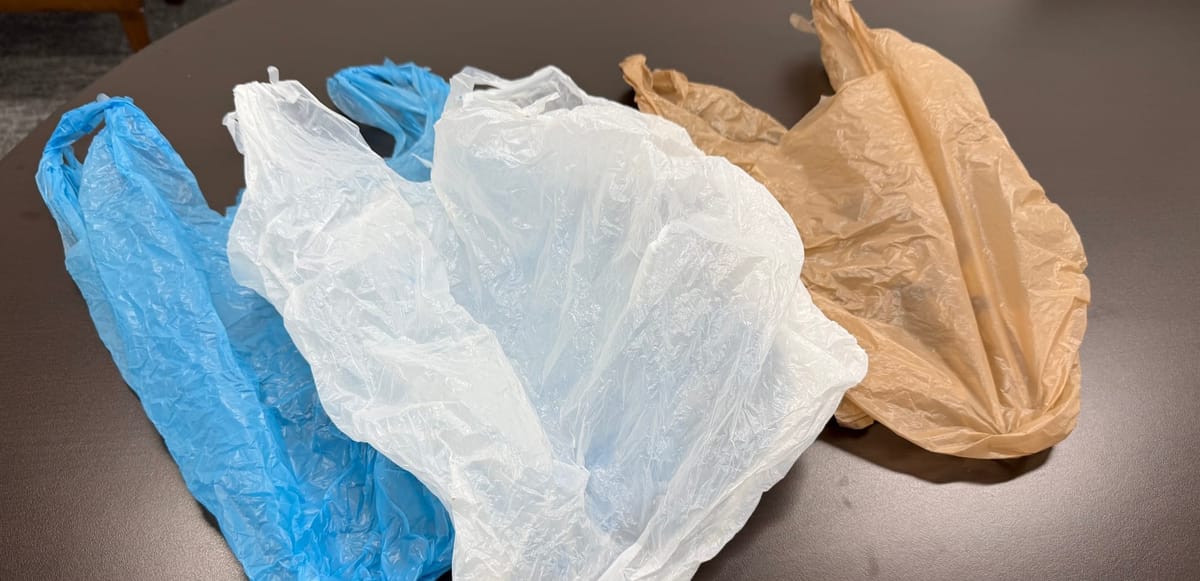
Richmond City Council to consider plastic bag tax this spring
Richmond City Council will consider this spring whether to impose a 5 cent tax on plastic bags used by grocery stores, pharmacies and convenience stores across the city.
If approved, the measure could go into effect as soon as January 2026. It would make Richmond the 11th local government in Virginia and the first in the region to impose a bag tax since the General Assembly gave cities and counties the option to do so in 2020.
Richmond has been eyeing the idea since then. Tara Worden, a manager in Richmond’s Office of Sustainability, said the city lobbied for the 2020 law, and a 2021 resolution passed by the prior City Council pledged to work towards imposing the tax.
“Single-use plastics have a devastating impact both on our environment and on our city infrastructure,” Worden told a Council committee Wednesday. “Plastic waste is a significant contributor to drain blockages throughout the city. These materials break down into microplastics that then enter the James River and the Chesapeake Bay.”
Not every plastic bag would be subject to the tax. State law specifically excludes durable plastic bags with handles that are designed for reuse, plastic bags solely used to wrap perishables like ice cream and meat, bags used for dry cleaning or prescription drugs, and packs of multiple bags sold to collect things like pet waste and garbage.
Based on an analysis of similar Virginia cities that have adopted the tax, the Office of Sustainability estimates Richmond residents would pay $2.12 and the city would generate about $371,000 in revenue annually as a result of the charge.
The proposal that will come before Council April 28 is expected to call for 3 cents of the tax to go to the city and 2 cents to retailers in the first year of the program. After that, 4 cents would go to the city and 1 to the retailer.
State law requires any revenues to go toward environmental cleanups, education programs designed to reduce waste or the purchase of reusable bags for people receiving SNAP or WIC benefits.
Councilor Kenya Gibson (3rd District) said Wednesday she was “very much in support” of the idea but asked how the city was planning to handle the administration of the program and whether it would require funding or other resources.
“We don’t have a great track record,” she said. “So I’m just wondering how are we going to make sure this works?”
Worden said retailers are responsible for self-reporting the number of bags they use to the state, and the state will send back revenue to the city. While Richmond would have to set up a special fund to receive that money, “I’m not sure there are additional administrative burdens that would be included as part of that establishment,” she said. “Once it is established, it should be sort of self-fulfilling.”
Given the reliance of the program on self-reports, Councilor Sarah Abubaker questioned how other local governments have made sure businesses are accurately reporting what they owe.
“Are they seeing that maybe these numbers are lower than they should be?” she asked.
Worden acknowledged that there would likely be “some self-reported numbers that may not be accurate or reflect the reality of the number of bags that were actually distributed at the point of sale.”
“The reality of this type of tax influencing human behavior — the jury’s still out,” she said. “The benefit is that it does generate some revenue to do environmental programs and education.”






